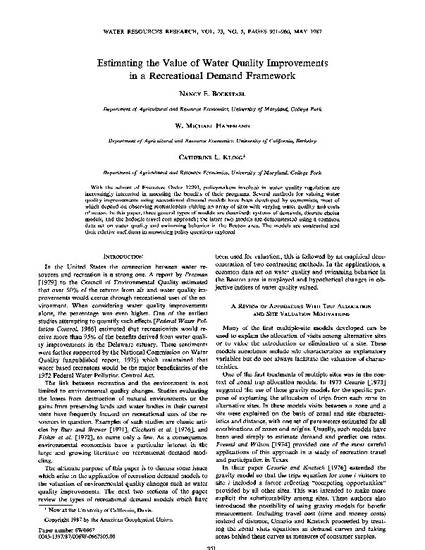
Article
Estimating the Value of Water Quality Improvements in a Recreational Demand Framework
Water Resources Research
(1987)
Abstract
With the advent of Executive Order 12291, policymakers involved in water quality regulation are
increasingly interested in assessing the benefits of their programs. Several methods for valuing water
quality improvements using recreational demand models have been developed by economists, most of
which depend on observing recreationists visiting an array of sites with varying water quality and costs
of access. In this paper, three general types of models are described: systems of demands, discrete choice
models, and the hedonic travel cost approach; the latter two models are demonstrated using a common
data set on water quality and swimming behavior in the Boston area. The models are contrasted and
their relative usefulness in answering policy questions explored.
Disciplines
Publication Date
1987
Publisher Statement
Copyright 1987 by the American Geophysical Union.
Citation Information
Nancy E. Bockstael, W. Michael Hanemann and Catherine Kling. "Estimating the Value of Water Quality Improvements in a Recreational Demand Framework" Water Resources Research Vol. 23 Iss. 5 (1987) p. 951 - 960 Available at: http://works.bepress.com/catherine_kling/115/
